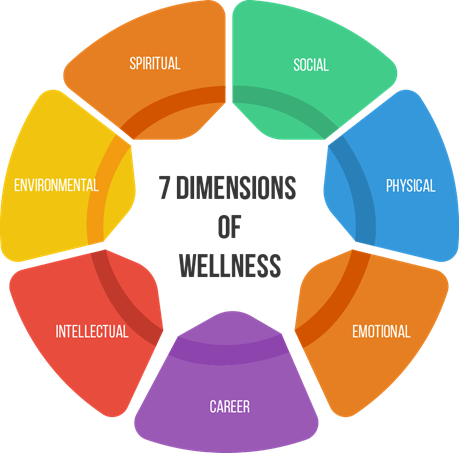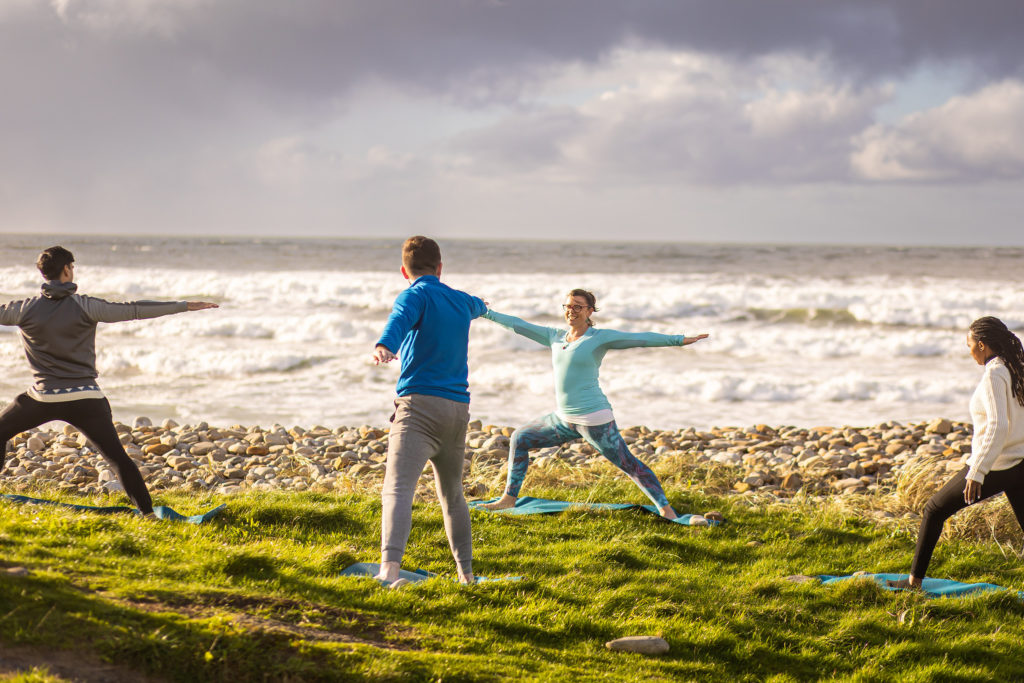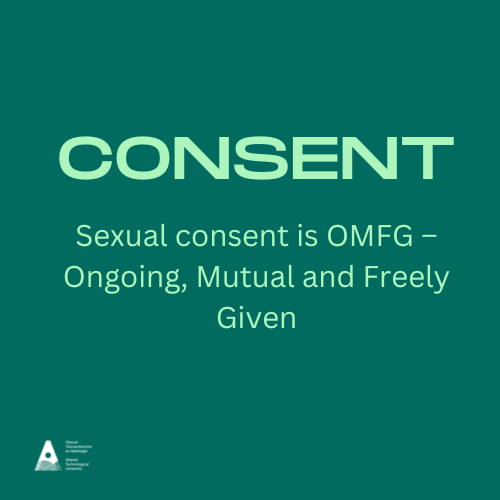Home » Student Portal » Mental Health » Wellbeing
Wellbeing

Student wellbeing is paramount at ATU Sligo
“Wellbeing is not just the absence of disease or illness. It’s a complex combination of a person’s physical, mental, emotional and social health factors. Wellbeing is strongly linked to happiness and life satisfaction. In short, wellbeing could be described as how you feel about yourself and your life”. Source: Better Health
Move More, Eat Better
This dimension of wellbeing focuses on preventing disease and add quality years to your life, by integrating exercise, nutritious diet and personal safety into your daily life. This can take the form of yoga, running, swimming, cutting down on caffeine/alcohol intake or ensuring safety on nights out.
Feeding your Brain
An active and open mind leads to a life filled with passion and purpose. To further apply this dimension of wellbeing, engaging in creative and stimulating activities are ideal, helping to keep your mind sharp and your brain healthy and happy. This can include learning a new skill, reading a book or making time to for your interests in your free time.
Love the Earth
Help the planet and bring a sense of accomplishment and wellbeing to your own life. Have you asked how your daily habits can affect the world around you in a positive way? Small changes such as recycling when we can or using a reusable cup can all help to promote this aspect of wellbeing.
Live with Purpose
This dimension of wellbeing focuses on enriching your life and that of others by sharing your special gifts, skills, and talents. Whether through work or volunteering, you can make a positive impact and reap the health benefits of adding purpose to your life.
Connect with Others
Personal connections contribute to a long and fulfilling life. When you nurture relationships with family and friends, you create healthy support networks for life. Planning a phone call with friends/family or going to lunch with a colleague a few times a week can help relieve stress, build resilience, and promote wellbeing.
Practice Gratitude
Self-esteem and optimism are really powerful. Expressing love and other emotions help achieve balance in the face of challenges. Be mindful and live in the moment! Recognising, knowing and feeling our emotions by telling the people we love that we appreciate them or crying when we feel sad allows us to experience the world around us fully.
Understanding and living by a set of core beliefs or values that shape you and how you live your life enriches our spiritual wellbeing. If you’re willing to seek meaning and purpose in your life with an open mind, you will likely find inner peace. Optimise your spiritual wellbeing by spending time alone/meditate regularly, listening with your heart and living by your principles and allowing yourself and those around you the freedom to be who they are.
Consent
Sexual consent is OMFG – Ongoing, Mutual and Freely Given.
Sexual consent is the voluntary agreement between both partners with equal power to engage in any sexual activity.
This agreement can be verbal or non-verbal but should be given freely by individuals capable of consenting, that is, who are over the legal age of consent and not under the influence of alcohol or drugs.
Consent should never be assumed – it should be a clear, ongoing and continuous process present in every new or repeated sexual encounter.
You need consent for ALL sexual activity.
For more information on consent, please visit our consent webpage.
Promoting Wellbeing
Connect
Make time each day to Connect. Connect with the people around you. With family, friends, colleagues and neighbours. At home, work, school or in your local community. By staying connected and nurturing these relationships we feel happier and more secure, giving us a better sense of purpose.

Be Active
Look for ways to be active everyday. Go for a walk or a run. Step outside. Cycle, play a game, garden or dance. Discover a physical activity you enjoy which suits your lifestyle and level of mobility and fitness. Research has shown being physically active can improve your mental health and wellbeing.

Take Notice
Be aware of the world around you and what you are feeling. Be Curious. Catch sight of the beautiful. Notice the changing seasons. Savour the moment whether you are walking to work, eating lunch or talking to friends. Pay attention to the present moment – to your thoughts, feelings and to the world around you.

Keep Learning
Try something new. Rediscover an old interest. Sign up for that course. Cook a new recipe. Take on a new responsibility. Setting yourself a new challenge and learning a new skill will increase your confidence which can improve your mental health and wellbeing.

Give
Giving to others is good for you. Do something nice for someone else. Thank someone. Volunteer your time or join a community group. See yourself and your happiness linked to the wider community can be incredibly rewarding and create connectedness with the people around you.

Positive Psychology Interventions (PPIs)
Positive Psychology Interventions (PPIs) are intentional activities that aim to boost wellbeing, enhance positive feelings, behaviours.
Everyday experiences such as eating, smelling, or observing with focus on what we are attending to can help you to remain present which can reduce stress and increase Wellbeing.
Empathy interventions place an emphasis on strengthening positive emotions in interpersonal relationships. Healthy social bonds in your profession and personal life are essential for happiness and inner peace. The following practices help people to create positive feelings towards themselves and others by being mindfully connected to the present.
- Loving kindness meditation can help you keep others in mind and cultivate compassion This article provides a guide on how to practice loving kindness meditation and also highlights the benefits.
- Self-love meditation can help cultivate self-compassion and boost overall positive emotions.
- Put yourself in other people’s shoes: being mindful of others and respecting boundaries can strengthen social bonds and improve interpersonal relationships.
Kindness interventions based on compassion can include random acts of kindness, volunteering, donating or simply helping a stranger in need.
- Random acts of kindness: these acts can range from holding the door open for someone to paying for a stranger’s coffee. The Random Acts of Kindness webpage is full of ideas
- Volunteering: Listening to and checking in on a friend, volunteering at local events and charities are all good ways to give your time and boast happiness in yourself and others.
- Smiling and greeting people: sometimes a simple smile or greeting can change someone’s day. We never know what someone else is dealing with and these simple acts can spread some happiness.
Optimistic interventions involve setting realistic expectations to create positive outcomes.
- The ‘Imagine Yourself’ test asks people to write down where they see themselves in the future. This is proven to be an effective way for people to understand how positive they are about themselves and other people in their lives (King, 2001).
- The ‘Life Summary Technique’ asks participants to assume they are happy and prosperous in their lives and to write a summary based on that assumption (Seligman, Rashid, & Parks, 2006). This offers participants an insight into what they think goes wrong in their everyday lives and what they can do to pursue the ideal lives that they want.
- Happify is an app which includes games and activities backed by research which help you change thought patterns and become happier and more optimistic.
- Memory building: taking a mental picture of an event, keep a journal record or scrapbook to document special moments.
- Self-congratulation: this involves savouring success to amplify positive emotions.
- Expression: expressing positive emotions such as laughter and clapping to celebrate a positive event.
Expressing gratitude has been shown to increase happiness, positivity and motivation.
- Journaling: recording things you are grateful for (big and small) daily. This app gives ideas on how to create your own gratitude journal and is available for iPad or iPhone.
- Gratitude jar: get an old box/jar/any container and decorate it however you wish. Each day, write three things you are grateful for and put them in the container. When it is full, look back on your gratitude tokens and reflect on them.
- Gratitude box – a thoughtful way to share positive feelings with loved ones and cultivate a sense of gratitude. Write down a heartfelt message of gratitude for a loved one (thank you for/what I appreciate about you is/what I love about you is). You can also collect messages from others to add to the box. When it is complete, gift it to your loved one, this will cultivate feelings of warmth and appreciation for both you and them.

Useful links
HSE – Health and Wellbeing offer various programme and supports that promote wellbeing.
Mental Health Ireland – 5 ways to Wellbeing as an in depth look at each of the five ways to wellbeing and tips for each.
A fact sheet and article on how to support and nurture your wellbeing.
This short 13 question survey, brought to you by the Centre for Spirituality and Healing at the University of Minnesota, allows you to assess your wellbeing and set goals to help improve your score.
